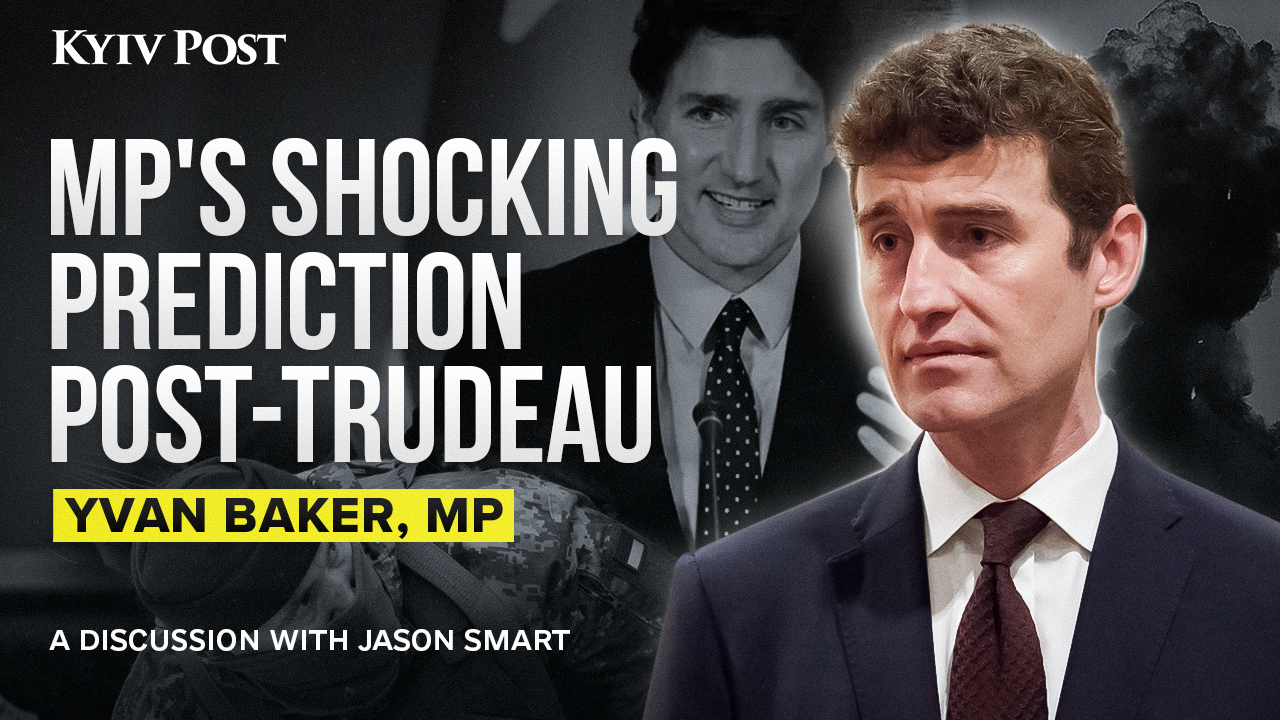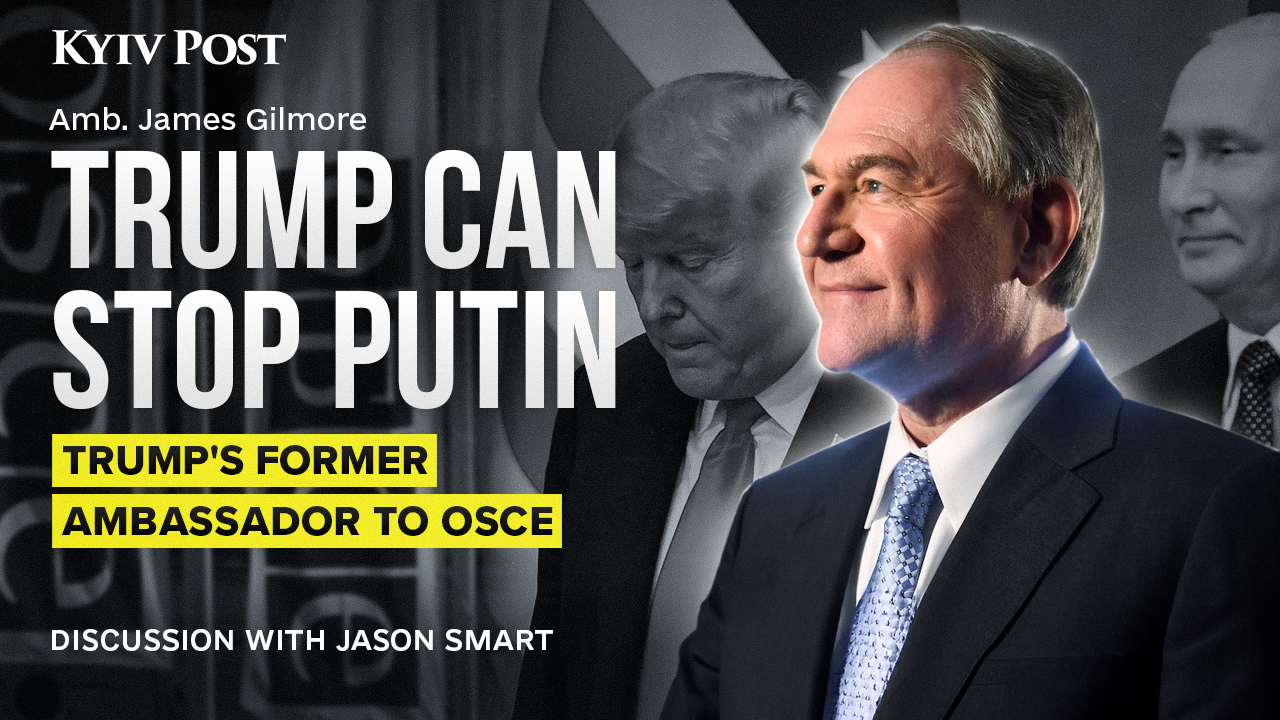Russian President Vladimir Putin on Thursday warned Ukraine’s Western allies that permitting Kyiv to use their longer-range weapons on targets within Russia would signal that NATO is now at war with the Russian Fedration.
Putin’s remarks do not represent the first time the Kremlin has issued such an ultimatum. These kinds of threats traditionally have been the purview of former Russian president Dmitry Medvedev, currently the head of the federation’s Security Council, or tasked to Kremlin spokesperson Dmitry Peskov.
JOIN US ON TELEGRAM
Follow our coverage of the war on the @Kyivpost_official.
But this week’s saber-rattling from Moscow’s autocrat for the past quarter century comes at an unprecedented time, when Ukraine has gained territory within the motherland, and top Western allies are on the verge of giving Kyiv free reign for the use of donated long-range missiles against military targets there.
“This would in a significant way change the very nature of the conflict,” Putin said. “It would mean that NATO countries, the US, European countries, are at war with Russia.”
Putin issued his warning shortly after US Secretary of State Antony Blinken in Kyiv promised that Washington would review such policies this week, and when his UK counterpart hinted that such policies were already a foregone conclusion in London.
Indeed, unnamed sources familiar with the discussions in London told the Guardian that the UK has decided already to green-light the use of its Storm Shadow missiles within Russian territory.

Russia Besieges Pokrovsk by Cutting Supply Lines – AFU Officer
The Guardian said unnamed British officials “indicated” to the publication that “a decision had already been made to allow Ukraine to use Storm Shadow cruise missiles on targets inside Russia.” The sources added that the decision likely wouldn’t be announced publicly until after Friday’s meeting between the UK Prime Minister Keir Starmer and US President Joe Biden in Washington.
Meanwhile, speaking at a press conference in Poland on Thursday, Blinken said Washington would “adapt as necessary, including with regard to the means that are at Ukraine’s disposal to effectively defend against the Russian aggression.”
Crimea is Ukraine.
— Secretary Antony Blinken (@SecBlinken) September 12, 2024
Crimea shows the future Putin seeks for all of Ukraine. It is not an isolated case — it is a blueprint.
At the Crimea Platform, I reiterated U.S. support for Ukraine's fight against Russia’s aggression. pic.twitter.com/V5ZWWCYrDY
US President Joe Biden is expected to review the policy with British Prime Minister Keir Starmer at their meeting in Washington on Friday, AFP reported.
Putin continued in his remarks, “If that’s the case,” Putin continued, “then taking into account the change of nature of the conflict, we will make the appropriate decisions based on the threats that we will face.”
President Volodymyr Zelensky consistently has pleaded with his allies to afford more leeway in restrictions on donated missiles, particularly regarding military assets well within Russia’s borders, which Zelensky said will only be relocated to points further eastward as his forces move into Russia’s Kursk region.
“The delay in this process leads to Russia moving these military targets deeper into Russia,” Zelensky said.
Several US newspapers have issued similar opinions this week. The Hill, for example, a newspaper catering to Washington insiders and other policy buffs, pleaded with Biden to call Putin’s nuclear “bluff.”
“As the war unfolded, the Russian Federation warned that it would launch a nuclear strike on Ukraine if these advanced weapons were given to the Ukrainians,” read a Thursday opinion piece in The Hill. “The Russians also stated that NATO would be forced to pay for its actions. But Russia’s bluffs were called, and nothing came.
“Most recently, the much-awaited F-16 fighter jets arrived in Ukraine,” the op-ed continued. “The Ukrainians also launched an incursion into the Russian province of Kursk. Over the past several weeks, the Ukrainians have taken hundreds of square kilometers of Russian territory. Even these two events did not result in a nuclear war.”
HIMARS strikes Russian military personnel and equipment with cluster missiles near one of the pontoon crossings across the Seym River, Kursk region. Video by @14reg_army.https://t.co/QK06SKFuhI pic.twitter.com/XIbaJGzvZg
— Special Kherson Cat 🐈🇺🇦 (@bayraktar_1love) September 12, 2024
Italian journalist landing on Moscow’s wanting list leads to diplomatic tensions in Rome
Italy’s Foreign Minister Antonio Tajani summoned Moscow’s ambassador to the Ministry on Thursday to explain why television journalist Stefania Battistini was placed on Russia’s wanted list.
Battistini, a reporter for Italian state television RAI, was among the first foreign journalists on the scene in Russia’s Kursk region last month, as Ukrainian forces launched their counter-invasion there.
Russian media had reported earlier in the day that seven foreign correspondents found themselves on that list: CNN correspondent Nick Paton Walch; Battistini and her RAI colleague, Simone Traini; Deutsche Welle’s Nicholas Simon Connolly; and Ukrainian journalists Nataliia Nahorna, Diana Butsko and Olesia Borovyk. Russia’s FSB, the heir to Moscow’s notorious KGB security service, accused the journalists of “illegal” border crossings.
Tajani, who inherited the leadership of Silvio Berlusconi’s center-right Forza Italia party last year following the former prime minister’s death, has been an increasingly vocal critic of the Kremlin as part of an otherwise-mildly pro-Kyiv coalition led by Prime Minister Giorgia Meloni.
On Tuesday, for example, during a visit to North Macedonia, Tajani called on the European Union’s leadership to “lend a hand to those peoples who want to be with us Europeans” and hasten their accession to the 27-member bloc.
“If we don’t do that, there will be someone else who wants to replace us: I mean Russia, China, and other parts of the world, I mean Turkey,” Tajani said.
Tajani wrote on social media platform X that the Foreign Ministry expressed its “surprise at Moscow’s curious decision” to put Battistini on such a list. He did not specifically mention Traini, a video journalist.
Both Traini and Battistini returned from Russia in mid-August, just a few days into the Ukrainian counter-invasion.
“The company decided to make journalist Stefania Battistini and cameraman Simone Traini return temporarily to Italy, solely to ensure personal safety and security,” their employer, RAI, said in a statement.
Ho fatto convocare alla Farnesina l'ambasciatore della Federazione russa in Italia per manifestare la nostra sorpresa a causa della singolare decisione di Mosca di inserire la giornalista Battistini nella lista dei ricercati diramata dal ministero dell'Interno russo.
— Antonio Tajani (@Antonio_Tajani) September 12, 2024
Ukraine’s Foreign Ministry highlights the effect of US sanctions on technology in Russia
The Foreign Ministry this week released a report that underscored the drain that Russia’s technology sector has already started to experience thanks to US sanctions.
“The US has introduced tougher sanctions against Russia in the IT field – a number of leading companies and services have announced withdrawal from the Russian market or introduction of new restrictions for Russian users as early as Sept. 12,” the Ministry’s statement reads.
Google, for example, has cut off Russian bloggers’ access to advertising revenue from AdSense, a popular way for content producers to monetize their websites.
The ministry’s report highlighted several other high-profile exits from the Russian market: SAP and Oracle have ceased all Russian sales of their enterprise-planning software, while Autodesk has done the same with its 3D design programs. Microsoft has started disconnecting Russian users from its cloud services, and Slack is discontinuing its corporate messenger services there.
You can also highlight the text and press Ctrl + Enter








